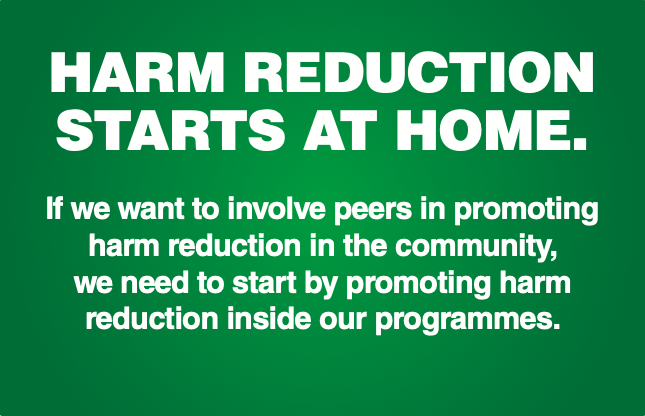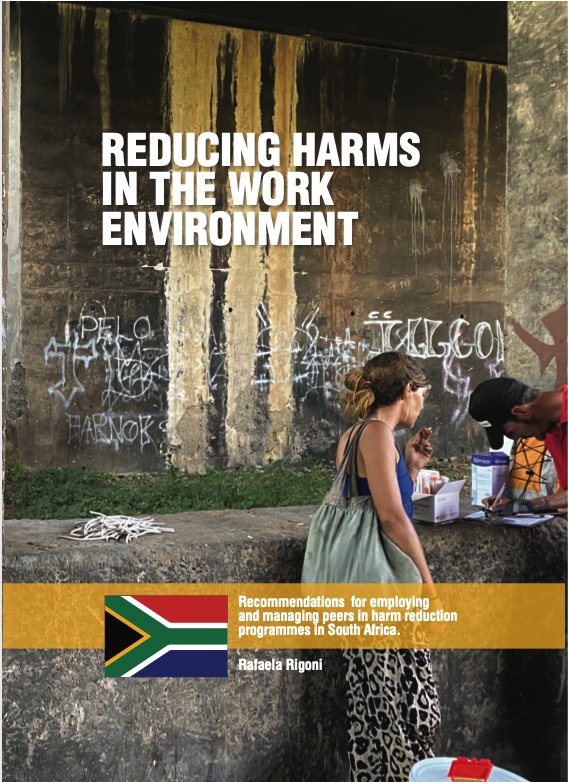This post is also available in: Português (Portuguese (Brazil))
The main principle

The eight recommendations
Pay attention to recruitment
It is recommended that both peers and managers are given the opportunity to be involved in all steps of the recruitment process for new staff.
Offer diverse work engagement levels
Not everyone will be ready or willing to work full time or in specific outreach functions. Offering different levels of work engagement creates opportunities for people who use drugs to progress through the organisation while respecting their possibilities and needs at a given moment.
Promote a harm reduction approach to drug use among staff.
Develop non-prohibitionist regulations at the workplace and focus on job performance instead of on drug use. What matters is that staff must be fit for work and protect the organisation’s image.
Foster a supportive work environment
Be appreciative and build trust. Provide good work conditions and support workers’ needs and self-care, for instance, by being flexible with working hours when staff needs to frequent OST, HIV, or HCV treatment.
Provide and foster mental health care
Offer debriefing sessions and other types of psychological and mental health support, both in groups and individually. Contribute to demystify mental health by promoting basic mental health training.
Build and sustain boundaries
This implies being transparent about rules and how they are applied for everyone, but also help to recognise, building, and maintaining boundaries to help protect staff from emotional burden.
Invest in team care by promoting diversity and respect
Invest in team care and promote an environment of trust among colleagues. Foster the construction of a diverse group and promote respect for this diversity within the team and the organisation.
Promote meaningful involvement of staff who uses drugs
Involve staff who uses drugs at all levels, not only on service delivery. Include staff in planning, evaluating, policy-decision making.
Each culture is different
The guide is available for reading here and will soon be available for download on the project page.
about the project
The project was funded by the Centers for Disease Control and Prevention and the Foundation for Professional Development (FPD) in South Africa and was coordinated by Mainline. I have performed the research as a consultant.
To write the guide, I interviewed in-depth 20 peers and managers working in harm reduction programs in South Africa and ran two focus group discussions with peers. I also had a fantastic time following peers in their outreach work activities in the country. Previous guides and literature were also included. Once a first draft of the guide was ready, a community review took place, where study participants and other relevant stakeholders were invited to revise and feedback the document. The revision resulted in the final guide.
I’m happy the guide is ready to be shared!! And I hope it can contribute to reducing the harms in the work environments of many peers.



